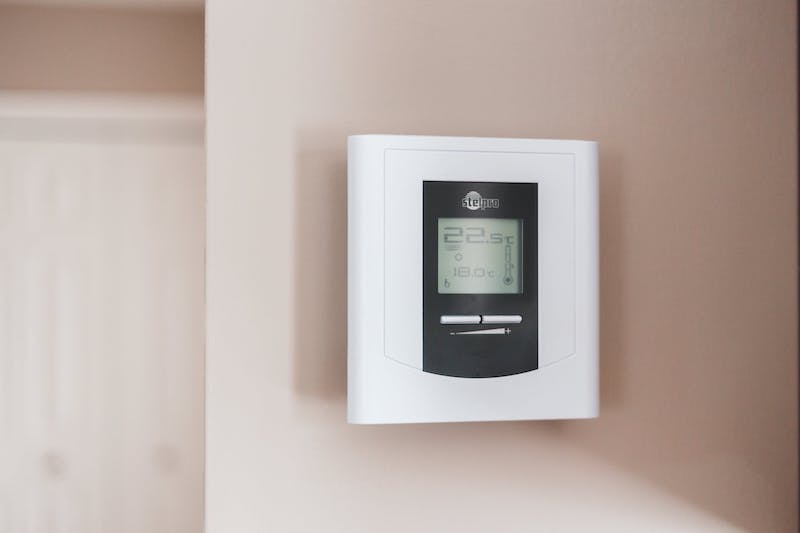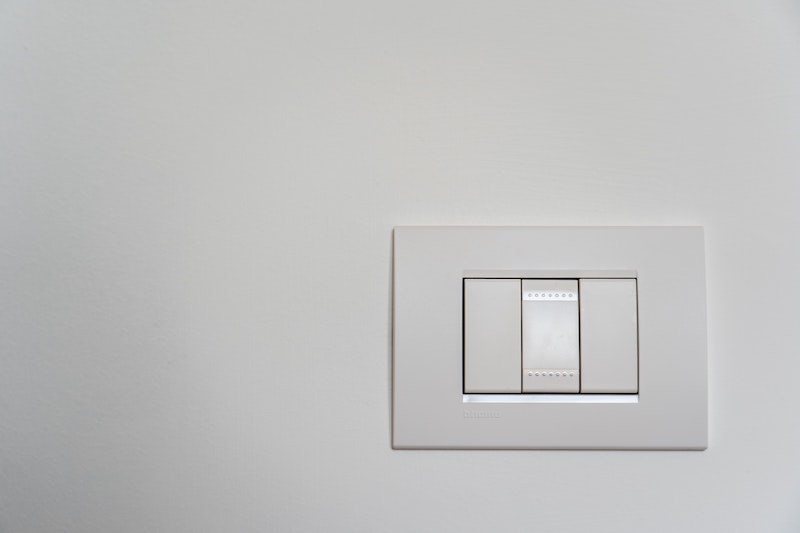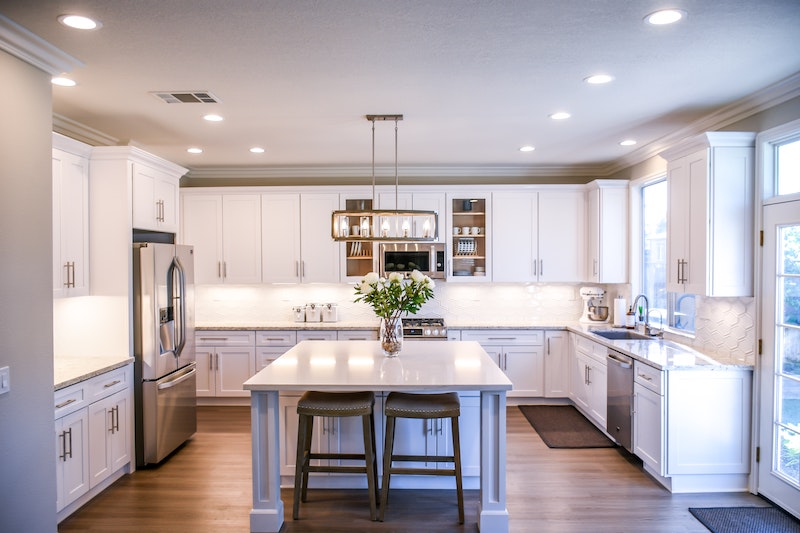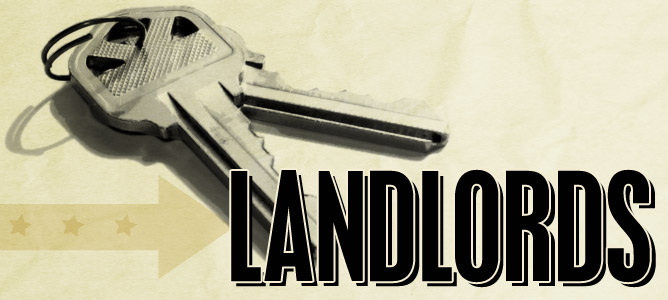What is Help to Buy?
Help to Buy is a government scheme that means you could buy a home with a deposit as low as 5%. Introduced in the March 2013 budget, the scheme was designed to make it easier for people with smaller deposits to get on the property ladder, and for existing homeowners to move house.
How does Help to Buy work?
With a Help to Buy Equity Loan, the Government lends first-time buyers up to 20% of the cost of their newly built home, which means some only need a 5% cash deposit and a 75% mortgage to make up the rest. And, you won’t be charged loan fees on the 20% loan for the first five years of owning your home.
Since the launch of the Help to Buy: equity loan scheme (1 April 2013 to 31 March 2017), 120,864 properties were bought with the support of the scheme, according to official figures. 81% of these sales were to first-time buyers.
There are two fundamentals to the scheme. The first is an Equity Loan scheme, which is open to both first-time buyers and home-movers but is restricted to new-build homes. So, if you’re looking for a modern place to live, a Help to Buy equity loan could be a good way to reduce the deposit you need to save up for. Even if you buy through Help to Buy and have a mortgage for less than the full price of the property, you become the legal owner with 100% title to your home.
So, if you wanted to buy a house for £400,000 with a 5% deposit you would need:
- £20,000 deposit
- £300,000 mortgage loan
- £80,000 loan from the government
Taking advantage of the Help to Buy scheme has two main benefits. Firstly, you only need a 5% deposit. Secondly, as you’re only borrowing 75%, you will be able to acquire better mortgage rates.
Help to Buy: London rates
To reflect the current property prices in London, the government will lend buyers up to 40% of a new-build’s price, rather than the 20% limit that applies outside of London. This means the maximum you can borrow from Help to Buy in England is £120,000, but up to £240,000 for London. There is no minimum amount.
How much do you need to pay?
Help to Buy equity loans are interest-free for the first five years. After this period, you start incurring a monthly interest fee, which starts at 1.75%. This increases yearly by any increase in the Retail Prices Index, plus 1%.
Because your equity loan from the government doesn’t decrease in size (unless you opt for early repayment), over time the cost of the admin fee could become pretty substantial, especially if inflation increases significantly. These fees come in addition to mortgage repayments.
Buyers must repay the equity loan in full after 25 years, or when your mortgage term ends, or when you sell your home – whichever happens first. The repayment is equal to the market value of your loan at the time, rather than the same quantity that you borrowed.
Following the purchase, buyers can also at any time make voluntary part repayments (also known as ‘staircasing’), or even a full repayment, of the Help to Buy assistance at the current market value. The minimum voluntary repayment is 10% of the market value at the time of repayment.
When participating in the Help to Buy scheme, you could either end up paying back more or less than you borrowed. This depends on whether your home increases or decreases in value.
For example, a person might take a 20% equity loan to buy a property worth £400,000 – so the loan is £80,000. However, when they decide to sell, the property’s value has increased to £500,000. The amount needed to repay the loan now jumps to £100,000, 20% of the new value of the home, not the amount first borrowed.
Extra fees
Buyers also need to pay a monthly management fee of £1 per month from the start of the loan until it is repaid. This fee, as well as the interest fees, do not count as repayments to your equity loan, so, unfortunately, do not reduce the amount owed.
To qualify for Help to Buy:
- You need deposit of at least five percent
- The maximum purchase price is £600,000 (though this limit changes for Help to Buy ISAs)
- The property purchased must be your only residence - you cannot rent out your existing home and buy a second home with Help to Buy
- Buyers must take out a first charge mortgage with a qualifying lender.
- Help to Buy buyers outside London must be able to fund up to 80% of their selected property through a conventional mortgage and deposit.
- London Help to Buy buyers must be able to fund 60% of the property through a conventional mortgage and deposit.
- Buyers cannot use the scheme if they require the main mortgage to be more than 4.5 times their household income.
The Local Help to Buy Agent will assess your application to ensure that you are in a position to afford a conventional mortgage for the purchase.
The Help to Buy scheme is available in England only. The Scottish Government, Welsh Government and Northern Ireland Housing Executive run similar schemes – check out their websites to find out more.
Where are Help to Buy homes available?
Help to Buy homes are available from house builders registered to offer Help to Buy homes in England. Registered builders will make it clear in their advertising if Help to Buy homes are available on their development sites.
Your Local Help to Buy Agent can also help you find out more about the availability of Help to Buy homes in your area.
What’s next? There are four main steps to successfully purchasing a property with the Help to Buy scheme. We’ll cover those in detail in another post.
For more detailed tips on buying a property using bridging, read more here.
How To Make a New Property More Energy Efficient
Halloween has passed, the clocks have gone back, and the wooly hats adorn our heads once more: winter has well and truly arrived (well, if you want to be slightly pedantic meteorological winter begins on 1st December, but let's forget about the technicalities).
What this in all likelihood means for us all is considerably more money spent on trying to keep warm throughout the season as the biting coldness kicks in.
However, are you one of the 40 percent who is worried about how you are going to afford heating this winter? The UK certainly doesn’t fare well in terms of energy efficiency – we are ranked one of the lowest in Europe according to Eurostat data, and, to top it off we also have the oldest building stock in Europe too. This translates as meaning that over 19 million homes in the UK rank a grade worse than C on their energy efficiency, with those rating on grades F and G contributing to over 25,000 deaths in the UK as a result of extreme cold.
This inefficiency also generates an excess amount of carbon emissions, leading to an ever more volatile climate in the UK,and an increased chance of floods: with annual flood damages already amounting to over £1.1 billion pounds in 2016. Admittedly very depressing statistics, but there is hope on the horizon – the government released last month its Clean Growth Strategy, promising to insulate and overhaul millions of draughty homes in England and Wales which could save families up to £300 a year on energy bills.
It’s great news, however, it is is to be achieved with a deadline of 2032, so a little far off. But do not fear: in the meantime, here are a few simple ways to improve the energy efficiency in your home that will not only save you money, but also decrease your carbon footprint and therefore keep your environmentally friendly credentials in check.
Make more than lukewarm savings with a thermostat

Did you know that more than half of all money spent on fuel bills is towards heating and hot water (and more so than on those spent on appliances or electronics?). For example, heating water makes up about four percent of the UK’s total carbon dioxide emissions, with the average house using around 330 litres each day (that is nearly 32 full bathtubs a week!) Would you like to change this?
Investing in a programmable thermostat could help you do just that, saving you up to £100 a year in energy bills as a result. Thermostats such as this by Nest Learning even work with Amazon Alexa voice control, and comes with an app to let you see how much you use and why.
Or, if you already have a room thermostat, simply turning down the controls by just one degree can save around £80 a year. Similarly, insulating your hot water cylinder with a fitted tank jacket can help you to make water savings and even more if you heat water electrically. This also saves you approximately 430 kg in carbon dioxide emissions through using less energy to heat and treat the water, so a unanimous thumbs-up.
Use Your Heating More Effectively
The majority of households simply don't make enough of their heating and radiators. There are some very simple ways to do this so that you get the most out of the heat that you are paying for. This includes:
- Removing draughts
- Using radiator panels
- Positioning of radiators
- Using sunlight more effectively
Those pesky draughts are what is bringing in the cold, typically around your windows and underneath your doors. Look at some simple ways of covering these up with carpets and rugs or even little sliders you can probably buy on amazon for a pound each.
Radiator panels are little sheets that you slide down the back of your radiator. Since most the heat from your radiator goes behind it, the panel essentially bounces this back into the room.
The positioning of radiators is key since putting things on top of them like clothes, cupboards or shelves is simply blocking the heat from entering the room. So don't be scared to remove some furniture or items that are in the way.
The few hours of sunlight that we get in November and December can still heat you the room. It is just sun that comes through the window, so don't be scared to open your blinds and curtains during the day to let the heat in but then close them when it gets dark because this is going to be colder.
Save money with the flick of a switch

On average, lighting makes up about 10% of energy bills, but it’s one of the easiest ways to quickly improve energy efficiency in your home. For example, LEDs, such as these ones by Phillips last for around nine years, which is considerably more compared to incandescent bulbs, and certainly worth the investment. Taking this a step further, if the average household replaced all bulbs with LEDs, it would cost about £100 and they’d save yearly about £35 on bills, so it is definitely worth considering making the switch if you are serious about considering making your home more energy efficient.
Solar Panels
Those funky looking things on your the side of your roof can save you some real money by using energy more efficiently. We're not going to sugar coat it, its definitely a long term game as solar panels cost around £5,000 to £7,000 to install (and less if you can get a government grant).
However, since this can contribute to powering your heating and electricity, the saving over a 20-year period ends up to be around £6,000 - which isn't bad. Plus, it can add value to your home and can be resold to the next owner of your property. If you have invested in farmland or have large roofs, this could be a great moving saving tool.
Why it is Important For Developers To Be Energy Efficient
If you have recently got the finance you needed from one of our development finance lenders and are working on the refurb of a new property, being energy efficient is important.
Not only do you save money running the place, you can pass on these savings to your tenants, which might make the place seem more appealing. Similarly, if you have kitted the place out with energy efficient lightbulbs, radiators, boilers and more, you can use this as an up-sell for a potential buyer and easily charge them more.
Furthermore, in this day and age of global warming, it is seen as the responsible thing to do, being 'green' and all and a lot of potential investors, buyers and tenants will respect you for making this decision in your fit out. So go on, don't be scared to be green!
Things To Consider Before Buying a House
As one of the most significant purchases of your life, there is much to consider before buying a house, whether as a first-time buyer, an experienced homeowner or property developer who has just secured a bridging loan.
Today, home ownership can be an advantageous option when compared to the rocketing costs of private renting. If you are ready to take that exciting step to end those monthly payments to your landlord and start the house hunt, then its time to consider these important points before hopping onto the housing ladder:
Costs of Moving
The main costs to include when moving are:
- mortgage broker fees
- monthly mortgage repayments (do you go standard, fixed or variable?)
- hiring a moving company
- buying new furniture, TVs and appliances
- home and contents insurance
Financial security should be your number one priority in the case of buying a house. Consider the true costs of buying; how much can you actually afford? Think ahead, how long will it take you to save for your deposit? How much can you afford to repay each month? How long will it take you to pay off the mortgage? And of course, are you getting the best interest rates? If you can afford larger monthly repayments, you could have a shorter mortgage and end up paying less in interest in the long term.
If you are a first-time buyer, you could benefit from the Government’s Help to Buy Scheme and if you are under the age of 39, the newly available Lifetime ISA. The Government will add a 25% bonus on top of savings when used towards a deposit. Deposits, surveys, legal fees, insurance, stamp duty, valuation fees and removal costs are all essential factors that you should consider in the budgeting process as suggested by Money Saving Expert. Of course, having some spare cash in your pocket goes a long way when it comes to those unexpected moving in costs.
Choosing a Location
City or country? Commuting or walking? Fresh air or pollution? Is there 4G signal coverage or is it a phone signal black spot? Whether you are uprooting to the big smoke or escaping to a donkey farm on the edge of the Peak District, location is KEY in the search for your perfect home.
Think about what is important to you in the long term. If you work from home, great. For the most of us, your commute is an essential part of daily life, so consider the costs of petrol or train fares on a yearly basis. If the thought of being crammed against fellow commuters on the tube on a hot summer’s day makes you shudder, then you need to reconsider.

Spending a little more for a better location in return for a pleasant walk to work each day, might be the right choice for you. Do you mind being close to a noisy railway station so that you can dash out the front door, and still have time to grab a coffee en route to catch your train? Is the house underneath a busy flight path?
Check out Ofsted reports to get a gauge for the best schools in the area. Check how far away the nearest supermarket is, and does the local pub have your favourite beer on tap? Weighing up the pros and cons, however large or small can be a laborious task but, in the long run, you will thank yourself.
Viewing The Property
This is your chance to assess the nitty-gritty. Always view the property more than once and at different times of the day. Your estate agent is there to be quizzed, so prepare for each viewing by being armed with questions as advised by the Home Owners Alliance.
There’s likely to be some negative factors that the vendor or agent will be keeping from you, so it’s important to draw these out before you purchase. Ask how long the house has been on the market, or why the seller is moving?
Have there been any recent issues with the boiler and how energy efficient is the place? Have a scan of the windows and walls in each room to check for damp or cracks, you don’t want to end up having costly repairs later on. Especially something like asbestos which could make the property absolutely inhabitable - so getting this checked beforehand could save you a lot of time and hassle.
Does your furniture match the decor or will you have to redecorate? Can you actually envisage yourself living there for the foreseeable future? The answers to these questions will save you time and help you to avoid disappointment.
Will it Hold its Value?
As a keen property investor, you need to know whether or not this place will keep its value or be worth significantly more in the future. There are some areas that are certainly up and coming and likely to skyrocket in the next few years, such as Tottenham (following the rejuvenation of the stadium and area) and trendy-Shoreditch with and-waterson-launch-shoreditch-property-scheme/">Long and Waterson's development scheme.
A good developer is able to suss out a good deal on the market or at auction and see the potential return on their property after 1,2,3 or 5 years. Above all, you need to consider whether the work you are putting into any refurbishments or renovation will bring you a good margin. You certainly don't want to spend too much on a loft conversion, garage and bespoke kitchen only for the area to not maintain its value.
Is There Room For Improvement?
There are several smart ways to increase the value of your property and being able to spot that potential is key. For instance, seeing that there might be space for a basement, loft conversion or conservatory can easily increase the value of the home by 10% to 30%. Importantly, is there the opportunity to get planning permission to do these kinds of changes or will there be obstructions from the neighbours and local council?
As a property developer, you need to be able to see potential immediately. Other ways to boost value of a home include sprucing up the garden, adding some kerb appeal like doing up the windows, lighting and entrance.
How to Make your Home More Energy Efficient
Imagine now that you have got the bridging finance you were looking for and starting to renovate and refurb a new property. It is important to know how to make it as energy efficient as possible because it pays to be green. You can save money on your monthly bills, help the environment and can act as a nice extra selling point.
As we are thrust into the colder months here in the UK, we not only have to think about keeping ourselves and our families warm; we also have to consider the costs of doing so. With regards to energy usage (as well as the arrival of Christmas for those that celebrate it), this is easily the most expensive time of the year. After the horrors of last year’s winter expenditure, you undoubtedly promised yourself that you’d do better on saving energy next year. Here’s how to put that promise into action.
Energy Saving Actions:
- Seal windows and floorboards
- Turn down the thermostat
- Go blanket-crazy
- Don’t leave items plugged in
- Replace normal lightbulbs with energy-savers
- Turn off the lights
- Switch off your computer monitor
- Insulate walls and attic
- Don’t overfill the kettle
Fix Draughts
The first step to warming up your house is to identify where the cold is getting in. Typical offenders are floorboards and windows. By no means do you have to go ahead and get new flooring and window panes: fill the cracks in your floorboard with sealant strips or use a filler product such as StopGap. For your windows, try WindowSkins; a clear membrane designed to stick across the window, creating a kind of temporary double glazing effect.
Save on Heating
Lowering the thermostat is the most obvious way to save energy costs during the winter. Obviously, we still need to heat our homes. Increase the efficiency of your heating by ensuring all cupboard and wardrobe doors are shut; there’s no need for spending on heating unpopulated spaces. Further, turn the radiators down or even off in the rooms that are less in need of being heated (kitchens and bathrooms, for instance).
Blankets, Blankets, Blankets!
Wrapping up never got more comfortable. Make sure your sofas and beds are blanket-heavy so that you don’t have to keep your heating on late at night, and give yourself a further excuse for that heavenly weekend bed-day. Find great deals on blankets at Dunelm or HomeSense.
Unplug
Don’t simply switch off your appliances; unplug them too. Even when nothing is turned on, energy can be wasted by items simply being left in the plug sockets. Further, take items off standby mode (particularly your TV); this could save you up to £30 per year.
Replace your Lightbulbs
Energy Saving Trust tells us that if we switched our halogen lightbulbs to LED lightbulbs, the average household would save £35 a year. Now that LED bulbs have reached halogen-level brightness, there shouldn’t be anything holding you back from making the switch. We’re always being told to turn off our lights when we aren’t using them, but we have to repeat it again. Switch off!
Turn off your Computer
We are all guilty of leaving our computers on constantly; we know it’ll get used tomorrow, so why shut it down only to turn it back on again? It really does save (both economically and environmentally) to turn off your monitor and go through the minor effort of re-starting it all back up again the next day. If you don’t use a computer all day, then turn it off throughout the day when you’re not using it. Turning off the screen only doesn’t count!
Insulate
Fixing your insulation has the propensity to be more expensive, but it is absolutely necessary for a warm, energy-efficient home. If your walls and attic are not adequately insulated your home will lose a lot of heat. Approximately 25% of heat is lost through the attic or roof, and a further 35% through the walls (source: thegreenage.co.uk). Insulate your home so that your heat is kept inside, and your money with it!
Be Kettle-Smart
Overfilling your kettle results in the same water being boiled and re-boiled over and over again, which is a total energy-waster. Use the guidelines on the kettle to decipher how much water you need for what you are making, and be vigilant when boiling; save yourself from forgetting you’ve boiled it already and boiling again by accident.
When it comes to saving energy at home, the cliché ‘every little helps’ really does apply. Whilst making big sweeping changes like buying new environmental appliances and bedecking your place with new flooring will make a huge difference to your energy efficiency, these changes are not always economically viable. Making smaller, incremental changes such as switching to LED bulbs and unplugging items will undoubtedly transform your place into a better environmental and energy-saving home.
Money Saving Tips for First-Time Home Owners
Saving on Your Mortgage
- Do your research when it comes to finding a mortgage provider.
As a first-step, make sure you check your credit score. If lenders see you as a risk, they will charge you more to account for that risk. Look into getting your credit ratings up before taking out a mortgage. Secondly, take the time to contact a number of lenders; do not just go for the first provider you stumble across. Mortgage deals vary enormously and you could end up losing out on a great deal. Utilize mortgage comparison sites, with a particular eye on their administrative fees.
- Overpay on your monthly payments while interest is low.
If your dealer allows you to overpay on monthly payments, then go ahead whilst you can. There is a potential to save a fair amount by paying more when interest rates are low, such that you have less to pay back when interest rates rise. After all, the longer you take to pay back your mortgage, the more interest you wind up paying. Bear in mind that the larger you pay out on your initial deposit, the lower your interest will be when you come to putting out those monthly installments as the total amount you have to pay back will be lower.
- Get off Standard Variable Rate
After your introductory rate, your mortgage provider will likely put you on the (usually expensive) Standard Variable Rate (SVA) if you fail to ask for a special rate. Be vocal with your provider, and make sure you scout out the alternatives that are on offer.
Saving on Utilities
- Switch service providers
If you have a current service provider from previous accommodation, research the market for better deals. Don’t stick with an expensive provider merely out of convenience. The market is always changing, so looking to switch every three years or so is good practice. If you are looking for a provider first-time thorough research is equally necessary, and you should be aware that switching later down the line will likely do your bank account some good in the long-term.
- Save on electricity
Simple tricks such as turning down the heating and using energy-saving light bulbs will make your home more energy efficient and thus cost effective. Ensure that window and floorboard draughts are fixed-up, and that your home is well insulated.
- Save on water
Firstly, make sure there is a fully-functioning boiler in your new place. The maintenance costs of a bad boiler can be astonishing, oftentimes surpassing the cost of replacing one altogether. If your new home has a water meter, the most obvious way to save is to be mindful of your water usage. This is important not only for costs, but for environmental factors also.
Saving on Your Interior
- Buy online
Sourcing your interior features online allows you to very easily and quickly compare the prices of items using the web, and also offers you reviews on the quality of the items you’re interested in. If you prefer to see items in person, look them up before you go instore to evaluate what else is out there and at what price.
- Buy Second-Hand
Marketplaces such as gumtree and eBay are great for finding cheap items to furnish your first home. Ask a seller if you can view their item before buying to ensure that it is in good condition. You can save on delivery costs by picking up items yourself.
- Do your own DIY
If you are up to it, avoid wasting money on hiring in painters and decorators to fix up your place. DIY is far cheaper, and it can also be fun! If you are less confident in this area, see if you can get a friend or family-member to help you with the process. For more specialized jobs, make sure you get multiple quotes before going with a decorating service to be sure as to how much the job should really cost.
Budgeting
A final, and vital way to make sure you don’t overspend during your first move is to budget efficiently. Keep track of your spending by keeping and logging receipts and payments so that you can easily visualize how much money is leaving your account and where it is ending up. Whether you log this on a spreadsheet, in an expenses diary, or in an app, budgeting can save you from losing track of your earnings. Be aware of the potential hidden costs that accompany home-ownership.
By researching the mortgage deals that are on offer; staying vigilant with your energy usage; avoiding impulse-buying and keeping organized with your spending; you have the potentiality to save plenty of money on your first move.
Even if you are a seasoned pro and looking for development finance for your fifth project, a lot of these good tips apply and can help you save money and get the best rates for all your utilities.
How to be a Good Landlord
Becoming a good landlord requires a lot of commitment and clear communication. With so many landlords obtaining a bad reputation these days, it is important to make sure you are choosing the right tenants and keeping those tenants happy. The following tips will help you to avoid that unjust bad reputation and guide you into becoming an excellent landlord.
Keeping your tenants happy
- Investing in your property
- Good communication
We’ve all heard those awful landlord related horror stories where the plumbing is a shambles and the walls are so thick with mould it feels like the house might fall down at any moment. Investing the time, money and energy into your properties will be beneficial to you in the long term.
If you can cover the costs, some good quality DIY will go a long way in keeping your tenants happy. If you have the time and skills to do so yourself, great. If you need to seek professional help it would be advisable to get to know the local plumbers in case of any urgent fixes. For all properties its ideal to keep up regular maintenance no matter how much you are charging per month.

The better the landlord, the happier the tenant right? Including a bottle of bubbly on move-in day is a plus but think about the overall life-cycle of the tenancy. Who is your target audience? Are you letting out to students, professionals or families? It’s important to keep up a decent relationship with your tenants and to get to know them so that you can tailor the property to their needs. Good communication is key to becoming a good landlord. Dependant on the type of tenant, you might have differing landlord approaches or properties.
A recent BBC programme ‘The Week The Landlords Move In’ documents the lives of landlords who have to spend a week living in one of their own rentals. Under great scrutiny, the show puts these millionaire landlords to the test to see how well they know their tenants, and how much they are really working hard as landlords. Ben for example, makes a fortune by renting out many properties in Egham to students. A great way to make a large profit quickly from poor students who have no choice in the amount of rent they have to pay; but sadly the programme highlights how this landlord has lost touch with this tenants, leaving it up to an agency to sort out anything that goes wrong with the property.
The boom in a number of students privately renting at rocketing prices has lead to landlords taking advantage and not putting their share of the work in.
This lack of communication can have huge implications on health and safety, which could lead to tenants not paying their rent or seeking legal action. Even if you use a letting agent to deal with your properties, it will be worth your while keeping in regular contact with individuals to avoid nasty relationships developing and costly repairs. Make yourself easily contactable and always give at least 24 hours notice before visiting the property.
Understanding your legal requirements
- Health and Safety Requirements
- Screening your tenants
- Insurance
Whether you are new to the landlord or a professional understanding your legal responsibilities are essential to making you a good landlord. Health and safety should be a number one priority, make sure you are following government guidelines for private renting to ensure you are meeting safety regulations for gas, electric and fire hazards. Ensure you have provided an Energy Performance Certificate which should contain information about the property’s energy use and costs. Understand tenancy agreements and check you are abiding by landlord-tenant laws. Its common practice to seek legal advice and ask a solicitor to draw up the tenancy agreement.
Screening your tenants properly before approving a rental agreement is key to your success as a landlord. Run a credit history check and ensure they have provided evidence of income as well as a guarantor reference, such as a previous landlord. Be sure to check that your tenants have the right to rent in the UK by gathering important documents and identification. Even if you are using a letting agent it would be wise to meet with the individuals face-to-face to develop a relationship with them.
Insuring the property is your responsibility, you can tailor a policy to suit your needs. Residential Landlords Insurance should typically cover you for: buildings insurance, contents cover, loss of rent, public liability and employer’s liability. If the property is furnished, draw up a detailed inventory of the contents. You need to provide proof of the items included in the tenancy agreement, as well as documenting the condition of each room. Sit the individuals down and talk them through the agreement in detail to make sure they understand everything. If both parties are in agreement before the tenancy it will help to avoid disputes in the future, or at the end of the tenancy.
Tips For Building a Great Kitchen
Let's face it, the kitchen is the room where everyone lives. Our lives are focused around food, whether it is Mum preparing food in the kitchen whilst the kids are doing their homework, having dinner or the long breakfast and lunches on the weekend. The kitchen is where it happens. So if you are renovating your existing kitchen or building a new one from scratch, we give you some great trips to put in place:
- Think budget
- Making it practical
- Using space effectively
Think Budget

Sure, we'd all love the world's greatest kitchen, both beautifully designed with all the latest tech and gear that comes with it. Whether it is pop-up TVs, hidden cupboards, power taps or the funky tap that changes hot and cold. But whilst The Mirror explains that even the most practical kitchen can increase your home's value by 4%, you still have to be conscious of budget and we will explain why.
The reality is that the cost of your kitchen needs to relate to the value of the home and those on the road. If your house is worth around £500,000 and so are all the others on the road, there is no point spending £100,000 on sprucing up a kitchen because your house value cannot rise by more than £100,000 - especially if all the neighbours' home similar in size. So you have to be practical in how much you spend and how this impacts the overall value of your home.
There is also no overall benefit of having the world's greatest kitchen but then a mediocre bathroom, living room or dining room - as it does not fit in with the rest of the house and future buyers will not dig it.
Making It Practical
Does It Also Become Your Dining Room?
A lot of households are also making their kitchens their dining rooms as a way to maximise space in the home. After all, a lot of dining rooms are only really for entertaining and are sometimes grand rooms that just end of getting covered in dust.
So if you're one of these modern households that want to make the kitchen the main dining area, it is worth smarting it up a bit and also allowing enough room for family and friends to join you around the table. This means that there is no point having a table with just 6 chairs around it but getting a table that can expand and fit 12 could be worthwhile.
Using Space Effectively

If you like to cook or you have kids that like to work and hang out in the kitchen, you can use space very effectively. For instance, case studies from leading designer The Wood Works shows the use of an island in the middle of the kitchen to store things and also clever bar stools for your children and their friends to hang out.
On the subject of making it child-friendly, a careful consideration is how it works for kids of all ages. For instance, if you have small children, does the table and island have space for a child seat? Can they climb up the bar stool without your help? Does it provide them with some support or will they fall off? In addition, you want to be careful about any tables of boards having sharp edges that you or your children could potentially bump into, especially if they are at heigh level for your offspring.
Colour
The colour of your kitchen is a careful consideration. A lot of kitchens go with the subtle tones of white (to match white goods) or light tones of grey, beige or even wood. If you are doing up a property as part of a property development finance project, you want a look that is fitting with the rest of the house and not too overpowering. Similarly, what chair colours and accessories go with it is also something to discuss - with the pink chairs featured above working nicely.
Easy To Clean
The kitchen is where we prepare food and where our children spend a lot of time - designing things and doing arts and crafts. So creating a kitchen that is easy to clean is very important. Some like the metallic look, like a restaurant kitchen just because it is so easy to clean. But for some people, you need to consider what materials and surfaces are most practical. For instance, tiles can be tougher to clean as things get through the cracks whereas flat surfaces and marble are certainly a lot more convenient.
Flooring
Your flooring must be practical. Whilst some shades of limestone look amazing, they can be on the slippery side which makes it not well suited for children and having lots of guests.
On the topic of cleanliness, the flatter surfaces are easier to clean compared to tiles or carpet which is likely to get stained or have things fall in between the cracks.
The Appliances
Are you a big family with a big appetite? Especially with babies and toddlers, you need a fridge to hold all the foods and formulas. Do you go with a normal size fridge or with a mega fridge like you see on MTV Cribs? Depending on your space, you can opt for the fridge and freezer in one, or some people have their freezers in the garage or utility room.
Other things to discuss are whether you go for an old school gas hob or a new snazzy electric hob. They say that gas hobs are more effective for cooking up a storm whereas the electric hobs are much easier to clean - so you have to weigh it up.
Is there anything else you would add to your perfect kitchen? Comment below!
What Are Your Rights as a Tenant?
As a tenant who is paying a landlord each month to live in a rented flat or home, you are entitled to certain rights and responsibilities. In some respects, you are the customer who can request things to be a certain way and can expect your accommodation to be a high level of standard. You also have the responsibility to be a good tenant and your behaviour and actions must also be according to the tenancy agreement that you signed.
People typically use bridging finance for the purposes of buy-to-let, so it is important to know what is expected of you as a landlord and how tenants should be acting too.
So, What Are Your Rights?
As a tenant you have the right to:
- Live in a property that is safe and in a good state of repair.
- When the tenancy ends, have your deposit returned to you. In some circumstances, have it protected!
- Challenge high charges and rent increases.
- Know your landlord and who he, she or they are.
- Live in the property, undisturbed to other tenants or third parties.
- Be protected from unfair eviction and unfair rent
- Have a written agreement if you have a fixed-term tenancy of more that 3 years
- See an energy performance certificate
If you have a tenancy agreement, it should be fair and comply with the law.
If you find that you do not know who your landlord is, be sure to write to the person, people or company you pay rent to. Your landlord can actually be fined if they do no give you this information within 21 days.
When You Start Your Tenancy Agreement
Once you start a tenancy, whether it be an assured or a short-term assured tenancy, your landlord will be expected by law to give you:
- A copy of the “How to rent guide” if you live in England
- A “tenant information pack” if you live in Scotland
Your Responsibilities
With your rights, come responsibilities when you are a tenant. You are required to give access to your landlord for him or her to be able to inspect the property or carry out any repairs that may need doing. In saying this, there are strict rules that state that your landlord cannot just walk in unannounced. He, she or they have to give you at least 24 hours notice before accessing the property that you are renting (see what are your rights as a landlord).
You Must Always:
- Pay the agreed rent, even if repairs are needed or you are in dispute with your landlord.
- Pay other charges as agreed with your landlord, like, for example, paying council tax and any utility bills.
- Take good care of the property you are renting, for example; do not damage the walls or carpets and think about turning off the water at the mains if you go away during cold weather.
- Repair or pay for any damage caused directly by you or someone you are responsible for when it comes to your home (i.e a friend, family members or a child) - be conscious when having people over to stay, socialise or throwing parties.
- You may only sublet a property if the tenancy agreement states you may, or if your landlord agrees regardless of whether a section on sub-letting features in you tenancy agreement. This could cause huge legal issues if your landlord finds out that you are renting the property to someone else without their permission.
Your landlord has the right to evict you and take legal action against you to do so. He, she or they may only do this with good reasons, such as you do you not meet your responsibilities, but cannot evict unless there is a clear reason or without good notice for you to find another residence.
Assured Tenants
An assured tenant will not usually have a resident landlord and the landlord will not provide any food or any services. If you are an assured tenant you will be paying rent for the accommodation which you occupy as your principal and only home.
Example of assured tenants include:
- Individual living in a flat
- Family living in a rented home
The following below are not assured tenants because they have a resident landlord and provide food and services:
- A student let (student residence and accommodation)
- A holiday let (hotel, villa, camp, park)
- A company let
- Business premises
- A Crown tenancy
- Private accommodation arranged by the local authority because you are homeless.
Rights of Assured Tenants
If you are an assured tenant, you have the right to remain in the rented property unless the landlord puts forward a good enough case in court as to why they have good reason to want to evict you. Examples of this may include if you are not paying the correct amount of rent and refuse to do so, you damage the property, or any of the terms of the tenancy are broken on your side. Common reasons are being responsible for loud noises or the landlord suspects that there are illegal dealings happening within the premises.
Meanwhile, as an assured tenant you have the right to get repairs done to the property without worrying about being evicted - but usually these will need to be approved by the landlord. Especially if you are looking to redo a bathroom, kitchen or add an extension - this is not something that should come out of your pocket completely and could impact the amount of rent that you pay. Alternatively, you could fit the bill of an extension but of course the landlord owns the property outright and will benefit when they sell it.
You have the right to stay in your home as long as you keep to the terms of the tenancy and other rights you have include:
- the right to have the accommodation kept in a reasonable state of repair by the landlord
- the right of your spouse, civil partner, or other partner to take over the tenancy on your death (‘the right of succession’)
- the right not to be treated fairly, and not discriminated against because of your disability, gender reassignment, pregnancy and maternity, race, religion or belief, sex or sexual orientation.
Rights of Short Term Assured Tenants
As an assured tenant with a short term agreement, you have the right to stay put in your property until the fixed term as stated in your contract ends. This again is unless you landlord find he, she or they are able to convince a court of the reasons for your eviction before the fixed term ends. The reasons will be for the same reasons as listed above, rent disagreements, damage etc.
You may stay on after the ending of the fixed term, even if you do not renew your agreement, until your landlord gives you notice at the end of the term – this is his, her or their responsibility.
As an assured short-term tenant, just like a stranded assured tenant, you have the right to get repairs done without the fear of being evicted for it. Your right are also the same as an assured tenant without a short term loan as listed above.
Rights of Protected Tenants
Protected tenants are rarely seen since the Housing Act 1988 but the system offers security, no residential landlord, a fair rent and no services provided like food or washing. This is the strongest form of a tenant agreement, you are granted 'tenure' which means you pay rent but they still occupy the land.
Some examples include senior living in accommodation where there is security but they have their own home and can make food and put on the wash like a regular guest.
As a protected tenant you have rights which are the following :
- Security of tenure (the land they occupy). Your landlord can repossess the accommodation in certain specified circumstances.
- The right to have the rent fixed by the rent officer.
- The right to have rent increased only in particular circumstances.
- The right to have the accommodation kept in a reasonable state or repair - see under heading Repairs.
- The right of your spouse, civil partner, other partner or another family member to take over the tenancy on your death
- The right not to be treated equally and not face discrimination or prejudice because of your disability, gender reassignment, pregnancy and maternity, race, religion or belief, sex or sexual orientation.
What Are Your Rights as a Landlord
With the rental sector enjoying a boom in industry, more and more people are interested in becoming a landlord or are simply curious to what it entails to be a landlord! Specifically, bridging finance is commonly used by buy-to-let investors and property developers who are looking to use the money to purchase a property, develop it and rent it out to tenants (both residential and commercial).
Overall, a lot of the responsibilities in a rental/tenancy agreement lie with the tenant or tenants, and people seem to know the rights of tenants more than they do with the rights of a landlord.
If you are wanting advice on how to evict a tenant and generally want to know about your rights with eviction, click here and here.
What Are Your Rights?
Payment of Rent:
- You should always have a tenancy agreement in place, such as a assured shorthold tenancy agreement. This will initially set out the amount for rent payable by the tenant to you, and when it will be paid.
- It is best to get your tenants to pay the rent to you by standing order, this way you are pretty much guaranteed to get your rent payments each month. Furthermore, you will have evidence of which payments you do receive, and more importantly, the payments you do not receive.
- If you find that you have a tenant or tenants that do not pay you for a set period, and there is no solution forthcoming, then you as the landlord have the ultimate right to serve the tenant or tenants an eviction notice. However, you must be sure to follow a procedure when doing this as explained a bit later on. You can also legally attempt to reclaim any unpaid rent, since it is legally yours.
- Check the terms and conditions laid out by the letting agent before signing an agreement.
Raising the Rent
- You may, at certain points in the tenancy, put up the rent. This will depend on the specifics of the tenancy agreement at hand. You may have to wait for a full fixed term to end before you can make the increase.
- You cannot simply just charge what you want though. The rent has to justifiable, and as do the reasons for upping the rent prices. The rent also has to be similar in comparison to other properties rent prices in the area. Otherwise, you tenant will be entitled to complain and then you will be forced to restore the price of the rent back to an acceptable enough level, or back to what it was before.
Damage and Neglect to the Property
- Unfortunately for your property, damage caused by those occupying the property and their visitors is not uncommon. The damage can easily be by accident, but in some cases it is on purpose. Either way, there will always be tenants who do cause damage to your property and belongings, if the property Is furnished. As a landlord, you may chose to pay for repairs as part of the agreement, this is quite normal – but have the right to evict if you believe major damage was done on purpose.
- Your tenants have a very high level of responsibility to keep the house or flat clean, in good condition and smoke-free (unless your agreement states otherwise). They are also expected to complete the basic maintenance like changing the lightbulbs and using the heating system responsibly. While being a landlord comes with the responsibility of carrying out most repairs, you do have the right to charge tenants for repairs if you see it fit.
- Tenants are obliged to stay within the terms of the tenancy agreement. This includes matters regarding as the keeping of pets – if damage or maintenance is required because of this, again you can take a deduction from the tenant's damage deposit or ask them to pay for the cost of repair altogether, since they have violated the contract.
- However, the exception to all of this is for 'fair wear and tear' such as to carpets or other furnishings – you can't charge the tenant for these since they are bound to be damaged in some way, shape or form.
- If you ever propose to charge a tenant for something of this nature, be sure that you have proof that the damage was caused while the property was occupied by those you are charging. You'll want to take photos to refer to and should properly cost the level of damage caused, complete with quotes to back you up if the tenant chooses to dispute the figure.
- If any damage is considered beyond the 'fair wear and tear' rule and the tenant will not either repair it themselves or pay for the cost of repair, you have the right to serve an eviction notice and retain the sum of money from their damage deposit to cover the cost of the damage and repairing this damage.
- Your last resort may be to go through a legal process to ask the tenant to repair the damage at their expense, but that may not be a viable option as costs could escalate. There are those who specialise in tenant eviction services that could help you through the process of doing so.
Gaining Access to Your Property
- It is actually illegal for you as a landlord and owner to enter your own property without agreement from your tenant prior to asking for access. Landlords do have rights to what is dubbed 'reasonable' access to carry out any repairs for which they are responsible for, but you will always need to get permission from the tenant with at least 24 hours' notice. If you don't follow this process, which can be a simple mistake since it is actually your property, you could be prosecuted for 'harassment'.
As a round up, here’s a quick reminder of what you do NOT have the rights to do as a landlord:
- Visit your tenants without prior warning or good reason, such as an inspection or to carry out duties of repairs, for example.
- You cannot make your tenants leave immediately, or physically force the out of the property and ‘help’ them move out. You must be careful not to make an illegal eviction, this can lead to serious legal action.
- It is a criminal offence to harass your tenants at all, this includes turning up to the property impromptu.
How To Report Noisy Neighbours
Nowadays, it is unfortunate that encountering noisy neighbours is not all that uncommon. You could complaining about noisy neighbours due to loud music being played, parties until the early hours in the garden or inside the house you are attached or directly next door too or pets making extreme levels of noise, especially does barking for hours upon hours.
Noise from neighbours includes:
- Loud music/TV
- Loud talking
- Machinery
- Pets
- Construction work
If you are finding that your home-life and relaxing time is being effected by any noisy neighbours, please take a look at our tips below.
Personal, face-to-face contact
To start off, you may not want to jump straight into reporting your neighbours to the local authorities without direct discussion that may potentially resolve the problem. Reporting them without any communication may cause unnecessary tension between yourself and your neighbours, creating an unpleasant home environment.
It may surprise you that your neighbour is actually unaware of the noise and therefore, disturbance they are causing. They may be unaware that you can hear them so clearly or that it is having a negative effect on you, especially if you are a little quieter than them.
The subject of ‘I think you are a noisy neighbour’ and potentially, ‘all the other people on the same street agree that you are a noisy neighbour’ can be a hard subject to bring up. So, we advise that you approach the situation in a calm, polite manner, whilst remaining firm and unapologetic. Avoided approaching them when in a heated moment as this is likely to cause arguments and create standoffish atmosphere. It is not advisable to phrase it is as a personal attack, or an attack in anyway at all. This will probably lead to them not listening to you properly, but rather being defensive and possibly retaliating.
It is important that if you feel in anyway unsafe approaching them alone, do not do it. However, avoid a whole gang of you going – this will make it feel like an attack and extremely intimidating for the person you are approaching about the noise.
Other personal contact
If you are not confident enough to approach them in person, or it just hasn’t worked, try writing them a letter. Include in the letter that you understand that they are probably unaware of any disturbance caused by them, and you are not claiming it is deliberate or out of spite. But you must explain the situation clearly and why and how it is effecting you and possibly the surrounding neighbours. Make sure you end the letter by thanking them for understanding and not being awkward about. If they do make the effort to comply, please do recognise it – and show your recognition by sending over a small gesture, like a thank you card.
Contacting the local council
Alternatively, if they do not make an effort to change or for some reason it gets worse, you may be forced to contact the local authorities. In the UK, you can report any noisy neighbours to your council through a tool on Gov.uk
Your own local council will have a specific office to deal with noise disturbances in the area. In a lot of cases, is office is located within the remit of the environmental health department, or in larger cities they may have a dedicated noise pollution team. The local police station in your area may also have a dedicated team that works to help and act as the mediator if you and your neighbor are unable to come to an amicable agreement or solution.
Your local council will also advise you to keep a small diary type of thing to record any disturbances. You should keep record of when the disturbance took place, how long you were experiencing the disturbance for and what the disturbance was at any particular time.
Try and keep it as factual as possible. Try a format similar too: Unable to sleep until around 4am, sounds like they had people round until the early hours with loud music – have to get up at 7 for work. Avoid writing down any irrelevant information, like that you are angry or the way you were feeling in general, this will then just turn into what sounds like a personal, everyday journal.
You can even record the noises and the activity using a recording device, a mobile phone or a video digital camera. But it is very important to note that under no circumstances should you publish these recordings or videos, they should only been used as evidence to present to the local council. So do not put it on Facebook, or Twitter or any other social media outlets, ever!
The local council do have the ultimate power to issue official warnings or an ‘abatement notice’. The abatement notice aims to forbid the nuisance from happening altogether or just to restrict it to certain times of the day. If your neighbour fails to adhere to this notice it is actually a criminal offence, leaving them open to a fine. In some areas of the country, councils have the right to get out on the spot fines. Councils are obliged to take action under the Environmental Protection Act 1990.
Getting the police involved
If a noise disturbance happens to play out at night, usually when it happens between the hours of 11pm and 7am, your local police will usually be the ones to take action. They will normally sent a community support officer to take responsibility for taking action on any noise complaints. They will usually be able to intervene to get the music turned down or off, or even help t mediate towards an agreement.
If a noisy neighbour is persistently disturbing the area, it can be seen as anti-social behaviour. If they are in rented accommodation they may be at risk of losing their home, as the landlord may evict them. This applies whether they are in local authority or social housing, or privately rented accommodation.
All of this information provided her applies to all forms of anti-social behaviour, other than violent and threatening behaviour. If there is violent or threatening behaviour report them directly and to the police every time.
For more information, watch this useful video below from an experienced property lawyer:








